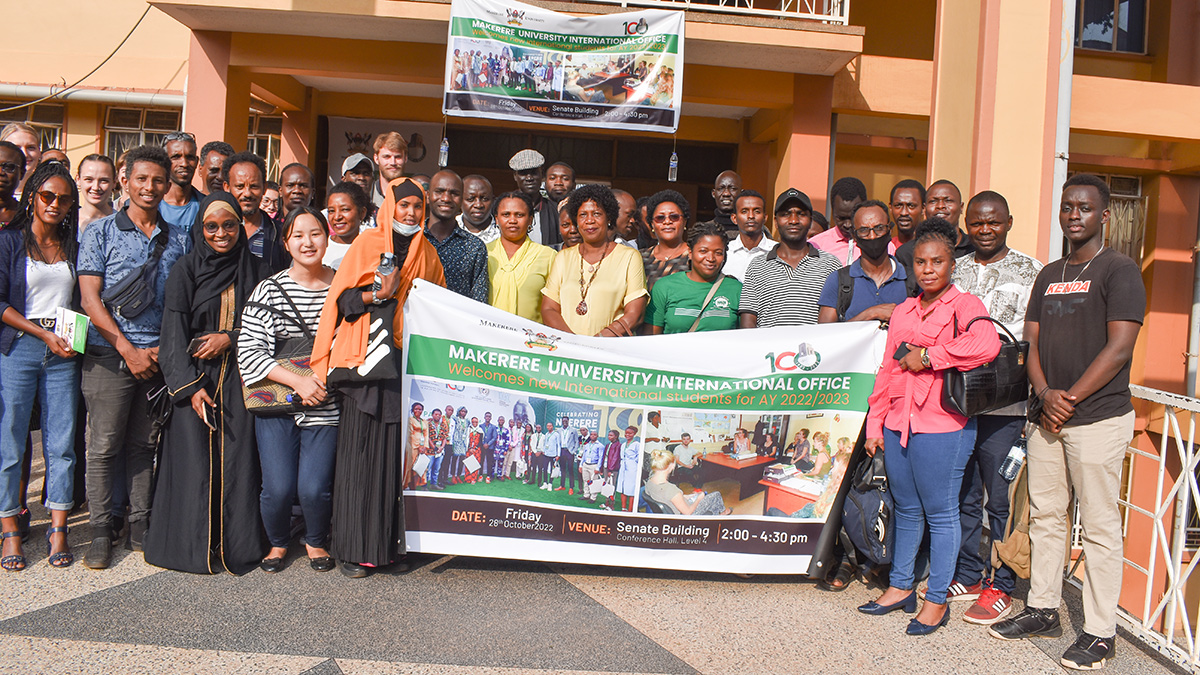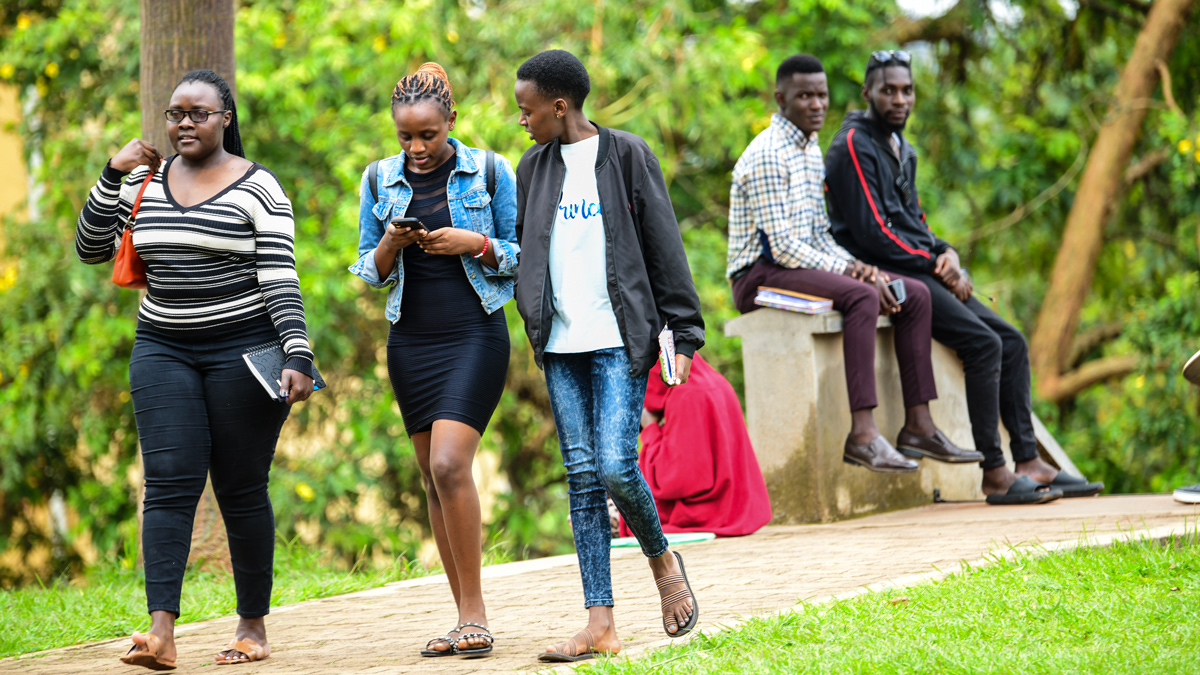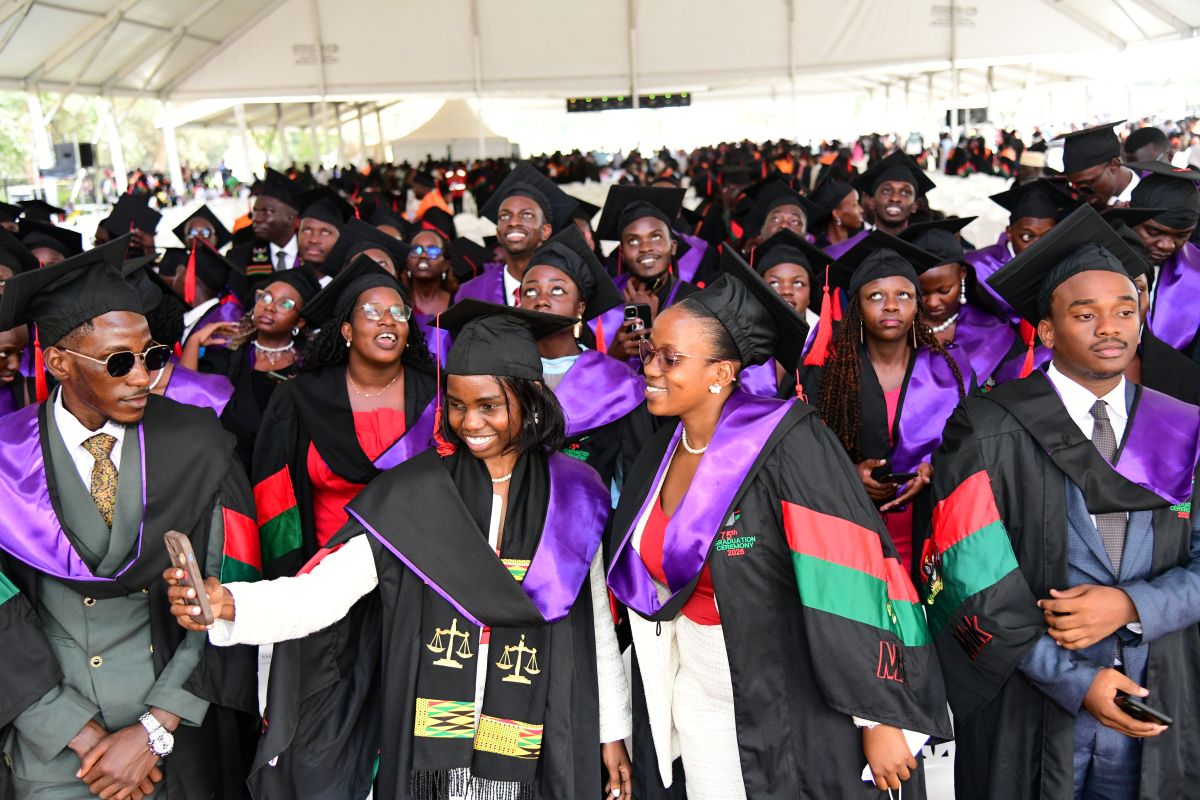The College of Business and Management Sciences (CoBAMS), Makerere University on Friday, 22nd June 2018 officially launched the Makerere Public Infrastructure Management (MPIM) Consortium at a function presided over by Ms. Christina Malmberg Calvo, the World Bank Country Manager, Uganda. MPIM is a professional entity that brings together a network of experts in the diverse areas of public infrastructure management with the objective of promoting sustainable infrastructure management. To help achieve this, MPIM will provide professional capacity, advisory services and best practices to public and private institutions involved in infrastructure projects and programmes in Uganda as well as elsewhere in Africa.
“Uganda has an ambitious development agenda of transforming itself into a modern and prosperous country by 2040. To achieve these targets, the Government has increased its capital investments significantly in the past decade to address the binding constraints to growth and job creation especially through infrastructure investments” remarked Ms. Malmberg.
She acknowledged that whereas this was a fine strategy, Uganda as a nation needed to improve its capacity to manage public infrastructure, especially the ability to assess and deliver projects on time and within budget. “There are projects that are completed at twice the original cost, in part, due to endemic delays in implementation, cost overruns and corruption” added Ms. Malmberg.

The Country Director therefore acknowledged the MPIM consortium launch as timely and a continuation of Makerere University’s leadership in building and strengthening institutional capacity to better manage public investments in Uganda. She however urged Makerere to work with the Government to attain faster execution of projects by building the capacities of ministries, department and agencies in project preparation, appraisal, approval and monitoring through the MPIM Consortium as a centre of excellence.
Ms. Malmberg also proposed that Makerere through the MPIM Consortium could help: strengthen the independent review of Government’s project proposals; document good practice operational procedures to ensure adaptive learning; monitor and evaluate all public capital investment projects under implementation; and support transparency especially during project appraisal.
Representing the Vice Chancellor Prof. Barnabas Nawangwe, the Deputy Vice Chancellor (Finance and Administration)-Prof. William Bazeyo thanked Ms. Christina Malmberg Calvo for accepting to preside over the event, noting that Makerere University and the World Bank have enjoyed cordial and mutually beneficial working relationship over several decades. He also appreciated members of the audience; most of whom were Makerere University Alumni, for continuing to support their alma mater by taking great interest in the consortium launch.

“Today marks an important day as we launch the Makerere Public Infrastructure Management Consortium. Makerere University through its remarkable Masters degree in Public Infrastructure Management supports a lot of infrastructural development in neighbouring countries by training managers from various sectors.
“I am therefore pleased that the consortium will be able to undertake research and development study initiatives in public infrastructure management with the aim of reducing the gap between knowledge acquisition and knowledge practice in infrastructure management” remarked the Deputy Vice Chancellor.
Prof. Bazeyo further commended the MPIM Patron and Dean, School of Business, Assoc. Prof. Umar Kakumba for being a great mobiliser, whose skills have greatly enhanced the Masters in Public Infrastructure Management’s growth and recognition.
“I thank the Pan-African Capacity Building Programme (PACBP), supported by the Development Bank of Southern Africa (DBSA), the International Development Corporation (IDC) and the French Agency for Development (AFD) as well as all development partners that have supported the Masters in Public Infrastructure Management program since its inception in 2012” the Principal CoBAMS, Assoc. Prof. Eria Hisali remarked. “These resources have been put to good use and the gathering today is one of the pieces of evidence that can attest to this” he added.

The Principal tasked the School of Business to work the MPIM alumni to incorporate a component on the role of communities in the management of infrastructural facilities. “We have already heard reports of vandalism of culverts and other road works along the recently completed Kampala-Entebbe Express Highway. This calls for a holistic approach to communication, especially in addition to the standard facilitation that accompanies infrastructure development” he shared.
Assoc. Prof. Hisali then paid tribute to the organising committee for the excellent work and preparations leading up to the successful consortium launch. “The MPIM Consortium will open a new door for understanding more cultures in the region and as a College we are committed to supporting all MPIM activities” he concluded.
Delivering the keynote address at the consortium launch, Assoc. Prof. Umar Kakumba noted that the huge investments in infrastructure projects and programmes to foster the development signified that resources were no longer the problem. “Today, the biggest obstacles are the leadership gap and professional managerial deficiency leading to loss and wastage of resources earmarked for development programs” he clarified.

He added that the Masters in Public Infrastructure Management was therefore developed to make Africa productive by reforming public service performance and building capacity of the African public service – through training and partnership. “The degree particularly focuses on enhancing managerial capacity in roads and transport management, water and sanitation, energy resources management, solid waste management, and health and education services” said Assoc. Prof. Kakumba.
In terms of impact to date, the program has registered and trained 152 students under MPIM, produced 92 graduates in four cohorts and received funding for 100 scholarships worth US$1Million. As a result, the program has trained senior managers from the; Uganda National Roads Authority-UNRA, Kampala Capital City Authority-KCCA, Ministry of Works and Transport-MoWT, Rwanda Development Board-RDB, Rwanda Utilities Regulatory Authority-RURA and Local Governments across East Africa.
As he concluded his address, Assoc. Prof. Kakumba shared that the MPIM Consortium would offer its alumni a networking forum for continuous interaction to foster ideals of the PACBP. In particular, the consortium would offer the alumni a vehicle to establish partnerships with Government non-government agencies as well as international collaboration and linkages. It would further provide capacity building and home-grown solutions to local infrastructure challenges and help mobilise tuition scholarships to train more managers.

Speaking on behalf of the partners, DBSA’s Programme Manager MPIM and Executive Coach-Dr. Dumisani Magadlela expressed his happiness at attending the launch, saying “in South Africa we hold Makerere University in high regard and thank you for leading. This programme is pioneering what we want to see in other regions and as such, we want to come in and support you strongly in technical terms” added Dr. Magadlela.
He also paid tribute to Assoc. Prof. Kakumba’s mobilisation skills, noting that he had helped the PACBP mobilise in South Africa for the Southern African Development Community (SADC) and in Senegal for the West African bloc. “Central Africa is also coming on board through the Omar Bongo University in Gabon and Dr. Kakumba is also helping to mobilise there.”
Dr. Magadlela further emphasised the PACBP’s keenness on achieving Sustainable Development Goal 4; Ensure inclusive and equitable quality education and promote lifelong learning opportunities for all, acknowledging that “the MPIM consortium launch is working towards achieving this SDG.”
“We are right with you, holding your hands going forward. We are ready to come and work with you especially on the short courses. You have a friend in South Africa” reassured Dr. Magadlela.

In the discussions that followed the consortium launch, panelists who included the EU Delegation to Uganda’s Head of Economic Growth-Mr. Pavlos Evangelidis, African Development Bank (AfDB)’s Overseer of Infrastructure Development in East Africa-Mr. George Adongo Makajuma and Dr. Ibrahim Okumu-Senior Lecturer, CoBAMS, discussed various issues ranging from financing infrastructure to its impact on local communities and economic development.
Mr. Evangelidis noted that whereas all EU funded programmes in Uganda were aimed at fostering economic growth, development and economic prosperity are not mutually exclusive of environmental sustainability. Funding to the tune of 600Million Euros has largely been and still is directed at infrastructure development with the aim of maximizing the profitability of Uganda’s exports.
He reiterated that the EU’s funding model is based on non-reversible grants and focuses on achieving public good. He also clarified that all projects funded by the EU are on upon request by the Government. He gave an example of the proposed Kampala-Jinja Expressway, a vital link of the transport sector’s northern corridor.

On the energy front, Mr. Evangelidis shared that the EU was working with Government to provide sustainable power in areas where it is currently unsustainable. This, he said, involves working with the Rural Electrification Agency (REA) to come up with mini-grids as a viable means of providing access to electricity.
In his contribution to the discussion, Mr. Makajuma shared that AfDB’s 10-year strategic plan is largely (up to 80%) made up of infrastructure as a means of unlocking export-led growth and trade: a strategy that minimizes social exclusion by bringing everybody into the national economy. He further shared AfDB’s focus is on promoting regional integrity that fosters inter-regional trade links. “Let’s do business with each other” he insisted.
On the financing front, Mr. Makajuma noted that debt servicing remains one of the biggest expenditures of developing economies. “The MPIM Consortium launch is long overdue as a means to help arrange and structure some of these deals on loans. We need assurance on the sustainability of money spent on infrastructure by examining the project lifecycle cost. For avoidance of rushed loans, contracts that are well structured should precede private sector involvement or consultation” he added.

He emphasised that the repayment period for infrastructure development loans should never be shorter than the lifecycle of investment, so as to prevent governments from being burdened by debt servicing before they accrue any returns on investment. “The efficiency game is the future of decision making and the MPIM Consortium exists to create that caliber of advisors. Today’s launch marks the start of a good journey and the African Development Bank is willing to support this initiative.”
Making his presentation on the “Voice of the Beneficiaries”, Dr. Okumu, quoting the World Bank Enterprise Survey 2013 (WBES 2013) shared that it takes 44 days to receive an electricity connection service, an economically unviable option for any business. He further cited interventions like the Isimba and Karuma hydroelectric projects, which despite being scheduled for completion in 2016 and 2017 respectively remained incomplete to date.

Dr. Okumu further decried the allocation of over 90% of road construction projects to foreign companies. “This has weakened the multiplier effect of huge government investment in infrastructure because after completion of the projects, very few of these skills have been passed on to the local communities.”
As a way forward, he called for further strengthening of capacity development in Public Infrastructure Management as well as the attachment of property of public officials under whose watch shoddy infrastructure development works occur, in addition to other punitive action. Lastly, he made a case for the urgent need to link skills development initiatives to infrastructural skill requirements.
The workshop also received presentations from the National Planning Authority (NPA)’s Resident Consultant-Mr. John Bosco Kintu Kavuma on the “Capacity for Project Implementation and Management of Infrastructure in the East African Region” as well as the Chairman, Board of Directors-Eng. Usama Kayima on the “Strategic Direction of the MPIM Consortium.”

Please see Downloads for the presentations
Related Article
Mak’s MPIM Nurtures Uganda Vision 2040 Change Agents

 General6 days ago
General6 days ago
 General1 week ago
General1 week ago
 General1 week ago
General1 week ago
 General1 week ago
General1 week ago
 General1 day ago
General1 day ago


